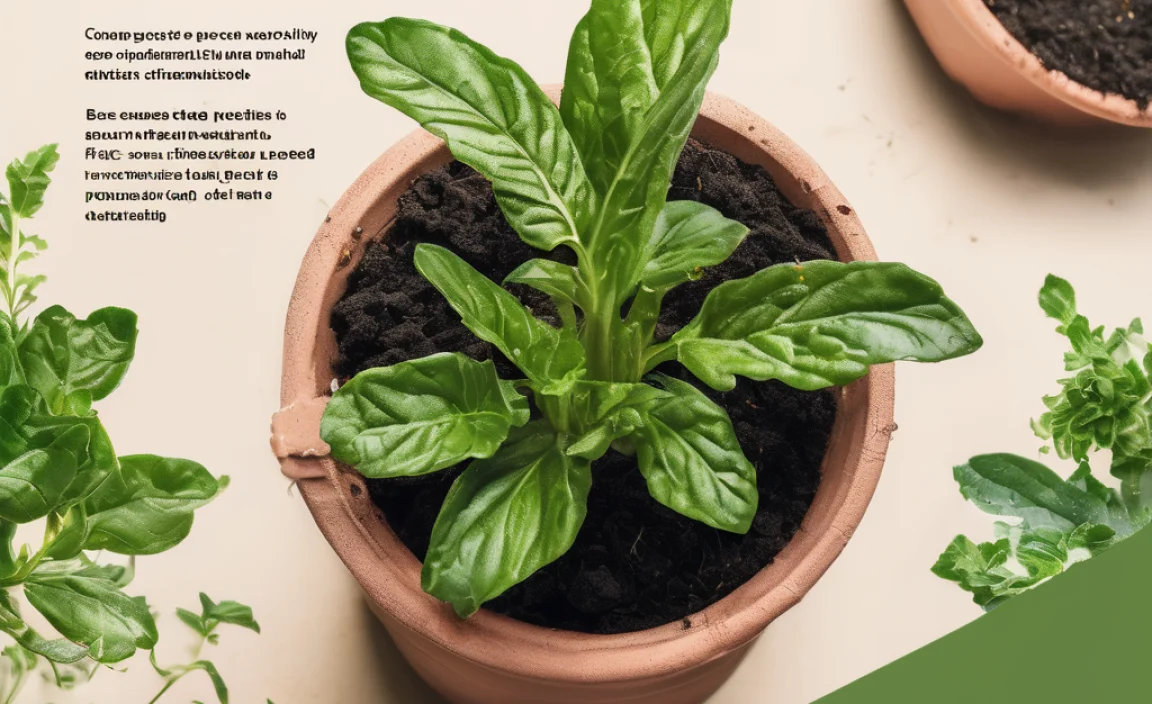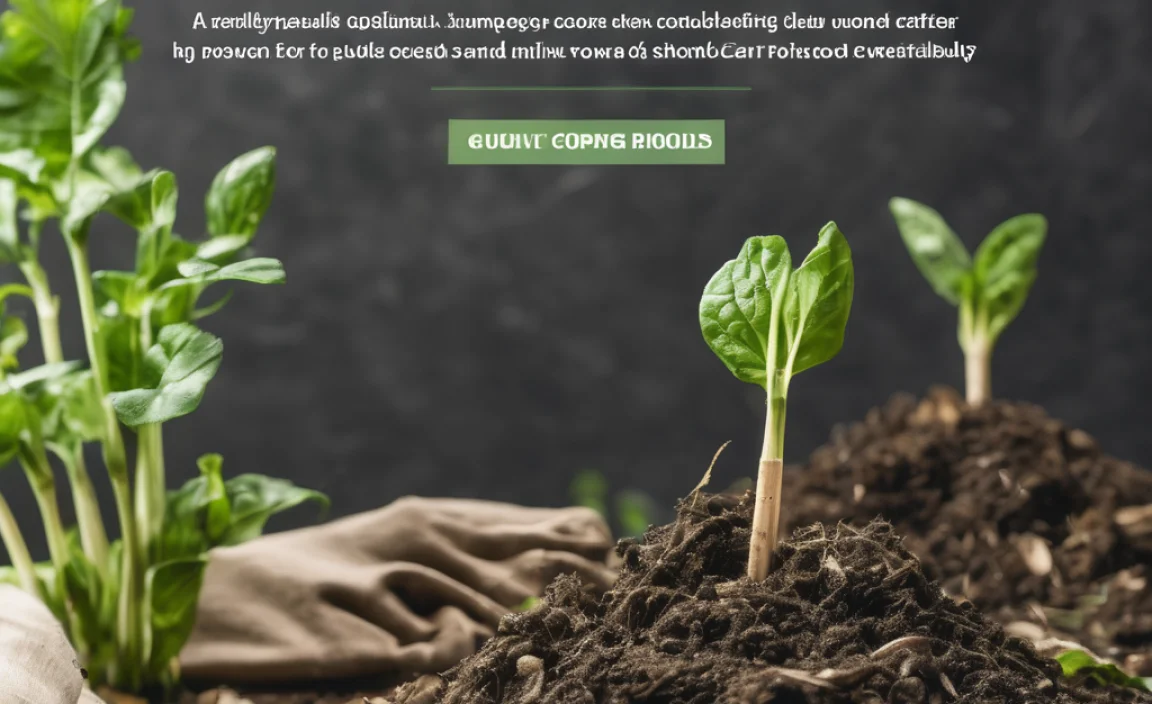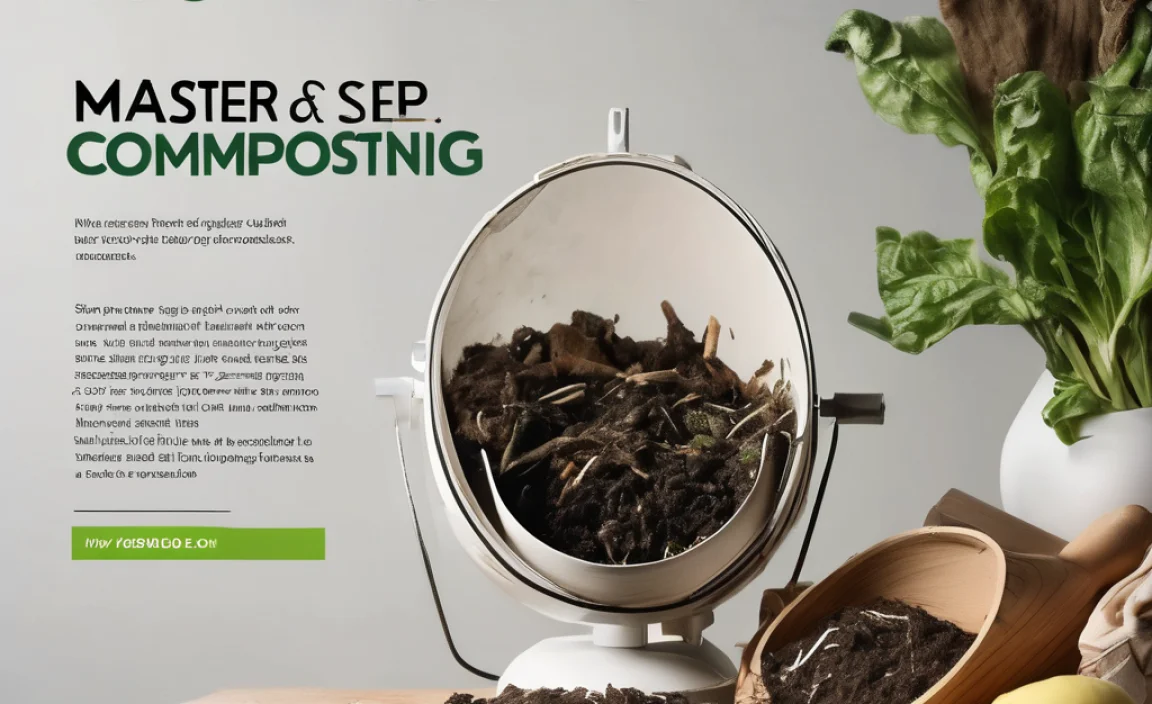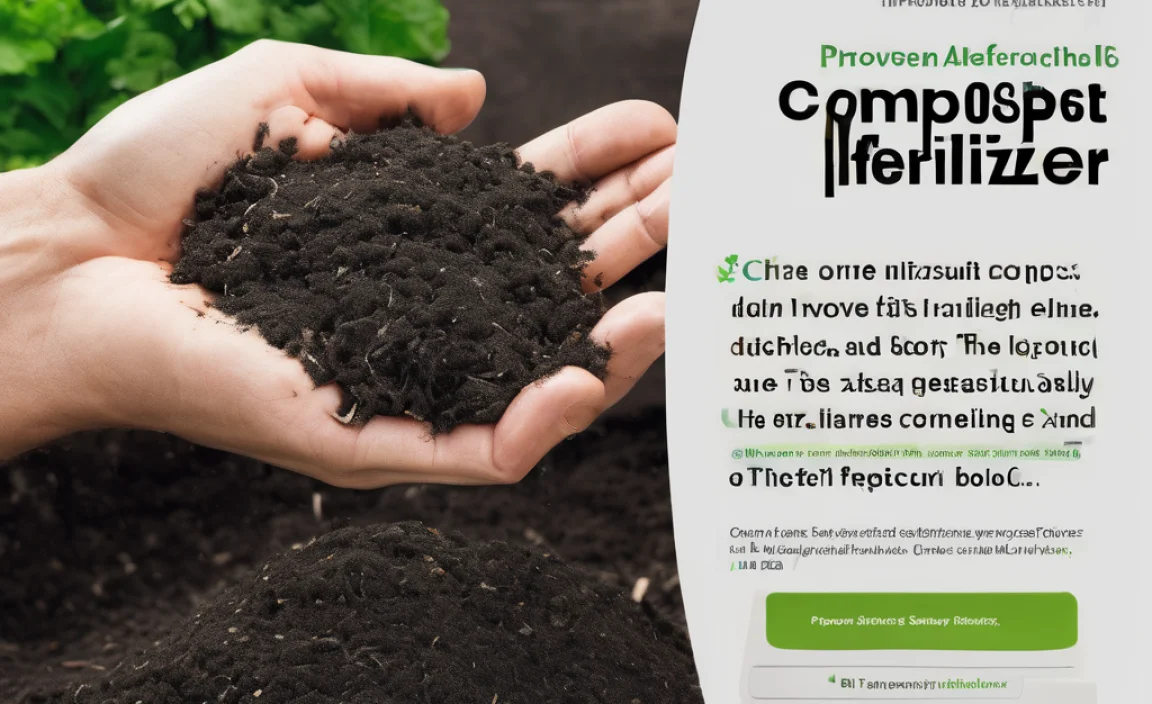Do you know that some kitchen waste can become plant food? Composting helps plants grow. But not everyone does it right. Many people make kitchen compost mistakes without knowing. If you have ever thought, “Can I compost this?” you’re not alone. Understanding what goes into composting can be fun and easy. Let’s explore how to avoid common composting errors and make our gardens bloom!
Key Takeaways
- Avoid putting meat and dairy in compost.
- Do not let compost become too dry or too wet.
- Chop large pieces before composting for faster breakdown.
- Keep fruit flies away by burying food scraps.
- Common kitchen compost mistakes can ruin your compost.
Common Kitchen Compost Mistakes
Creating compost from kitchen waste is simple. Yet, many make easy mistakes. One big mistake is adding meat or dairy. These items attract pests and create bad smells. Another problem is adding too much water. Wet compost has less air, making it smell. Dry compost, on the other hand, depends on moisture for microorganisms to thrive. Balancing wet and dry items is key. Chopping big pieces into smaller ones speeds up composting. It’s like preparing a salad, but for your plants!
- Never add meat or dairy.
- Keep compost moist but not soggy.
- Chop large pieces before adding.
- Turn compost regularly for air.
- Bury food scraps to avoid flies.
- Include a mix of greens and browns.
Balancing these elements ensures your compost pile is healthy. Think of it as a recipe for a perfect garden. You want the right amount of each ingredient. Mistakes can be smelly and messy. But with practice, these can become second nature.
Fun Fact or Stats : A balanced compost pile has a carbon to nitrogen ratio of 30:1.
What Not To Compost
Not everything from the kitchen can go into compost. Some items cause problems. Citrus peels, for example, take a long time to break down. They can make compost too acidic. Onion peels and garlic can scare away the good bugs. Bread and pasta attract mice and other animals. It’s important to know the dos and don’ts. By avoiding mistakes, your compost will be better for plants.
- Citrus peels can make compost too acidic.
- Onion and garlic repel helpful insects.
- Bread attracts unwanted pests.
- Oil and fat slow down decomposition.
- Eggshells need to be crushed.
Learning what not to compost makes the process smoother. It also helps in creating richer soil. Every good compost pile needs care and attention. By understanding what harms it, you can avoid potential problems. This will make the composting process rewarding for both you and your garden.
Fun Fact or Stats : An ideal compost pile should reach 140°F to kill bad bacteria.
Balancing Green and Brown Materials
Your compost needs a mix of green and brown materials. Greens are stuff like vegetable scraps. Browns are things like dried leaves. Greens provide nitrogen, while browns add carbon. Both are essential for composting. Imagine making a pizza. You need both dough and toppings. Too much of one makes it taste bad. Composting is the same. Balance is important for success.
- Greens are vegetable waste, coffee grounds.
- Browns include leaves, twigs, paper.
- Mix greens and browns evenly.
- Add layers of greens and browns.
- Turn the compost for even mixing.
Balancing these elements helps the compost break down faster. It also ensures the compost is rich in nutrients. A balanced compost pile keeps unwanted bugs away. Remember, the goal is to create a healthy environment for microbes. They are the key players in breaking down waste.
Fun Fact or Stats : Optimal composting needs 60% moisture content.
How To Properly Aerate Your Compost
Aerating your compost means adding air to it. Compost needs air like we need air to breathe. Without air, the compost will smell. Turning the compost with a pitchfork helps. This mixes materials and adds air. It’s like stirring a soup. You want everything well mixed. Proper aeration speeds up the composting process. It also helps keep pests away.
- Turn compost at least once a week.
- Use a pitchfork for easy turning.
- Add dry leaves to improve aeration.
- Build compost in layers for better airflow.
- Avoid compacting the compost pile.
Aeration is crucial for a healthy compost pile. It allows microorganisms to do their job efficiently. These little workers need air to break down materials. Regular turning of the compost is like giving them a breath of fresh air. It ensures your compost is ready faster and smells fresh.
Fun Fact or Stats : Well-aerated compost can be ready in just two months!
Dealing With Pests In Compost
Pests can ruin a compost pile fast. Rats, flies, and other pests are attracted to food scraps. To avoid them, keep food scraps covered. Bury them under a layer of brown material. Using a compost bin with a tight lid helps. This keeps pests out and makes composting easier. If pests invade, try adding more browns. They help dry out the compost and keep pests away.
- Cover food scraps with leaves.
- Use a closed compost bin.
- Avoid meat and dairy scraps.
- Turn compost often to deter pests.
- Add lime to reduce acidity and smell.
Dealing with pests requires vigilance. By maintaining a clean compost pile, you reduce the attraction for pests. Always cover food scraps and use lids. This keeps the compost pile odor-free and pest-free. A few adjustments make a big difference in your composting success.
Fun Fact or Stats : A well-maintained compost bin reduces waste by 30%!
Monitoring Your Compost’s Progress
Keeping an eye on your compost is important. Look for changes weekly. Is it too dry or too wet? Is it breaking down properly? Use a thermometer to check the temperature. A good compost pile stays warm. Warmth means the microbes are working. They break down the waste into nutrient-rich soil. Recording changes helps you learn what works best.
- Check temperature with a compost thermometer.
- Aim for a temperature of 140°F.
- Turn compost if it cools down too much.
- Add water if it’s too dry.
- Test smell; it should be earthy, not foul.
Monitoring compost helps catch kitchen compost mistakes early. It lets you adjust moisture and temperature. Keeping records shows what works best for your compost pile. With this knowledge, you can make rich, healthy compost. Success comes from attention and care. Do not forget to document your observations and learn as you go.
Fun Fact or Stats : Compost should be as moist as a wrung-out sponge.
Conclusion
Composting is a wonderful way to recycle kitchen waste. Avoid common kitchen compost mistakes by following these tips. Monitor your compost, balance materials, and keep pests away. With practice, you will create rich soil for your garden. Happy composting!
FAQs
Question: What are common kitchen compost mistakes?
Answer: Common mistakes include adding meat or dairy, not balancing greens and browns, and letting compost get too wet or dry. Avoid these for a successful compost pile.
Question: Why shouldn’t I add meat or dairy to compost?
Answer: Meat and dairy attract pests and create bad smells. They can also slow down the composting process. Stick to plant-based kitchen scraps for the best results.
Question: How can I tell if my compost is too wet?
Answer: A too-wet compost pile will smell bad and may attract pests. It should feel like a damp sponge. If it’s soggy, add more dry materials like leaves or paper.
Question: How do I keep pests out of my compost?
Answer: Use a closed bin, cover food scraps with leaves, and avoid composting meat or dairy. Regularly turning the pile and keeping it well-aerated also help deter pests.
Question: What is the best way to balance greens and browns?
Answer: Alternate layers of greens (like veggie scraps) and browns (like dried leaves). Aim for an equal ratio. This balance helps speed up decomposition and prevents odor.
Question: How often should I turn my compost?
Answer: Turn your compost at least once a week. This adds air and helps mix materials, speeding up the composting process. It also keeps the compost from becoming too compact.




